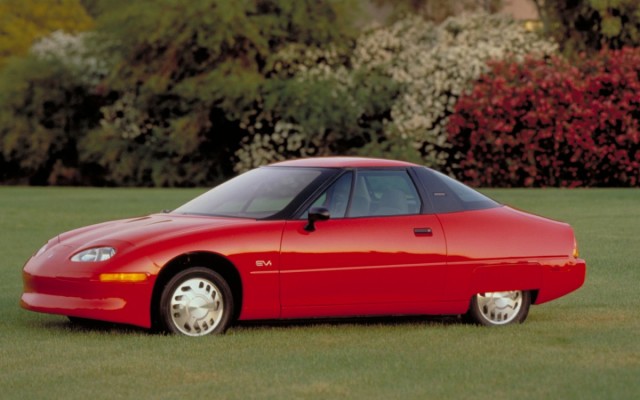General Motors and Ford knew about the possible impact of climate change as far back as 50 years ago, according to a new report from E&E News.
Based on more than two dozen interviews with former employees, academics, and environmentalists, as well as examination of corporate documents, the report reveals that GM and Ford were "deeply and actively engaged" since the 1960s in understanding how their cars affected the climate, Carroll Muffett, president and CEO of the Center for International Environmental Law, said in a statement.
"We also know that certainly by the 1980s and 1990s, the auto industry was involved in efforts to undermine climate science and stop progress to address climate change," Muffett said.
The findings reveal parallels between the two automakers and ExxonMobil, E&E News noted. The oil and gas giant began conducting research in the 1970s that confirmed the occurrence of climate change—and the role of fossil fuels in accelerating it—but kept that research quiet.
A GM scientist presented her findings to at least three high-level executives at the automaker, including a former chairman and CEO, according to the report. However, investigators were unable to confirm whether similar warnings reached the top level of Ford.

1996 General Motors EV1
A 1990 research paper by GM fellow Charles Amann suggested "battery-electric cars" as a solution to climate change, the report noted. But when GM launched its first production electric car—the EV1—in 1996, it was mainly in response to stricter California emissions standards, the report said. A Ford Ranger EV pickup truck launched in 1998 in response to those rules as well.
GM became the first automaker to sign for action onto a United States declaration on climate change in 2013. More recently, GM has been pitching an all-electric future, but it has lackluster support from Washington, and a presidential administration that has attempted to undo all climate-change efforts.
Despite its declared interest in lowering emissions, GM has also sided with the Trump Administration in the fight over California's emissions standards. A poll earlier this year found that was hurting GM's reputation, and California has also threatened to boycott GM for fleet purchases.
While Ford's climate tenor changed in the early 2000s with Bill Ford Jr. in charge, its strategy has been given a new focus with the product plan since 2017.
Ford supports California's ability to set its own, stricter, emissions standards, and also plans to field more electric vehicles, including the Mustang Mach-E crossover and F-150 Electric pickup.
